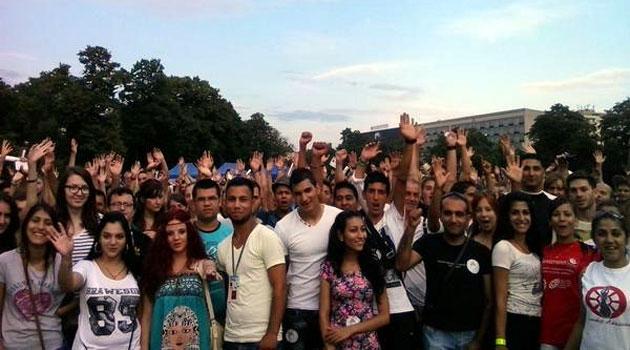Interview with Romani American William Bila about the Roma Holocaust

Slovak news server SME.sk published an interview on 12 August with William Bila, a Romani man living in New York whose parents fled Slovakia after Warsaw Pact troops invaded Czechoslovakia in 1968. Bila(45) studied management and has worked for auditing companies.
He has long been involved in commemorating the annihilation of Romani people by the Nazis. The native New Yorker with the Slovak ID card came to the Polish city of Krakow to attend the commemoration of the 70th anniverary of the Roma Holocaust and the screening of "A People Uncounted", a documentary by Canadian director Aaron Yeger in which Bila and Romani people from Slovakia describe that Holocaust; news server Romea.cz presents an excerpt of the interview in translation:
Q: Why is it important to commemorate the Roma Holocaust?
A: Every human being and every nation should know its own history. This is not just about the history of Romani people, but of the entire Central European region. The Roma Holocaust is not just something that happened and will never be repeated. Pupils in schools have almost no chance to learn about it. I learned about it because my parents told me about it and I sought out information about it myself. In Bohemia almost 90 % of the Romani people were annihilated, but not in Slovakia. These are interesting historical facts.
Q: What do you make of the fact that the Roma Holocaust is beginning to be publicly discussed?
A: My Mom was very glad I could speak about this tragedy in the film. It was made four years ago, and today three of the eyewitnesses featured in it are no longer alive. Romani people today don’t have much more time to document their Holocaust. We need to talk about it, to make films about it, to write books about it. The public still does not have enough information about the Roma Holocaust.
Q: Your parents are from Slovakia – where exactly?
A: My parents come from Western Slovakia, my father was born in Skalice, Mom in Myjava. Both moved to Bratislava, where they lived until August 1968. When the Russian Army came, my father saw no future in Slovakia. He fled to Vienna and my Mom, my three brothers and sisters followed him two weeks later.
Q: You were born an American.
A: Yes, I was born in New York in 1969, but I have been to Slovakia many times.
Q: How is the life of Romani people different in our country compared to the United States?
A: It’s hard for me to answer that because my parents never lived in a Romani settlement. That’s why I don’t exactly know what traditional Romani life is like – they lived like everyone else in Slovakia. They had a house, educations, jobs. Unlike their Romani peers, they had good luck, they moved to a big city, they didn’t live in Eastern Slovakia, and that’s why no one there ever even considered them Romani settlers. In the United States it’s completely different. It doesn’t mean anything when I say I am an American Roma – I’m American, that’s the main thing. People there don’t differentiate between an Irish American, a Spanish American or a Romani American. The truth is that many people don’t even know who the Roma actually are. They imagine Gypsies dancing, singing, and playing the guitar or violin.
Q: What is your view of how Romani people live in Slovakia?
A: In my opinion their lives are getting worse. Several of my Romani acquaintances who came to Canada in the 1990s have self-confidence now. They have gotten rid of the feeling that everyone thinks only bad things about them, that they come from a bad culture, that they have something about them to be ashamed of. I have not noticed self-confidence among Roman people in Slovakia, not even in the Czech Republic. In the USA we learn from childhood that every culture contributes a positive value, but you don’t learn that here. When you say "Romani culture" here, the majority society imagines a life in a settlement, poverty, filth – or musicians. That, however, is not Romani history.
